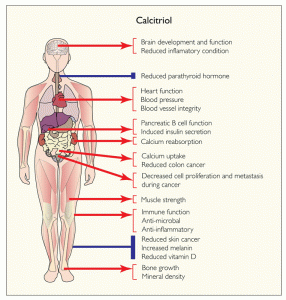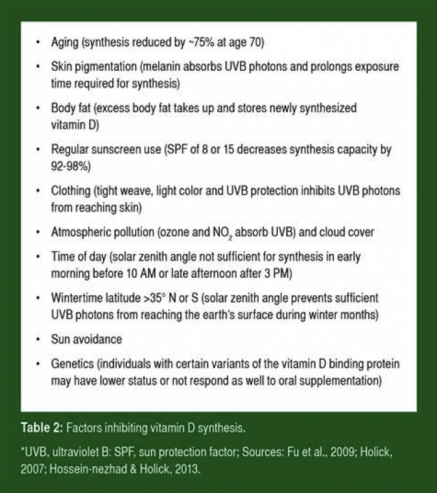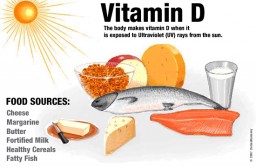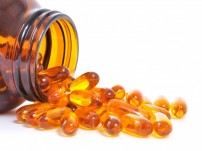The Importance of Vitamin D for Athletes
September 24, 2015
Undoubtedly you have been told to “go outside and get some vitamin D” at some point in your life. The “Sun vitamin” is the only nutrient that we can get from the environment and not just from our diet. As college athletes, we understand the importance of properly fueling our bodies and receiving vitamins our body needs to function best. But do you receive enough Vitamin D? Do you know what vitamin D does? Do you know its affect on athletic performance? If you answered “no” to any of these questions, you’re in the right place. Keep reading to discover the importance of vitamin D!
WHAT IS VITAMIN D?
Greek Olympians were encouraged to train under the sunrays due to its benefits to physical health described by the physician Antyllus. Even then, the benefits of sunshine were apparent on the performance of athletes. Today, we know this is the work of vitamin D. Although vitamin D is considered a “vitamin”-an organic compound in food needed in small amounts for growth and good health-our requirement can be met entirely through synthesis in the skin with sun exposure. Ultraviolet radiation in sunlight converts a precursor located in the skin to vitamin D. From here the new vitamin is sent to the liver where it is converted in to the main storage form. When needed, vitamin D is converted to a hormonal form and driven by parathyroid hormones to work.
VITAMIN D SOURCES
As mentioned earlier, vitamin D can be synthesized upon sun exposure. However, anything that limits amount or quality of sun exposure can compromise vitamin D status. Athletes who live at higher longitudes far form the equator, wear clothing that covers most skin, have darker skin, or have excess body fat will likely not be able to receive their vitamin D requirements via sunlight. The chart below further explains how vitamin D can be limited from the sun
If this is you, don’t panic! The good news is some vitamin D can be obtained through your diet. Fatty fish (salmon, mackerel, sardines, tuna), mushrooms, yogurt, soy milk, fruit juice, and egg yolks all contain high levels of vitamin D. Work these foods into your diet to replenish you vitamin D stores. Vitamin D can also be supplemented.
HOW MUCH VITAMIN D SHOULD YOU GET?
The US Institute of Medicine Guidelines suggests that people receive 40 nmol/L of vitamin D a day. However, this suggestion continues to rise as many experts believe that 100-250 nmol/L is optimal for human health. Sub-optimal vitamin D is widespread among the general population and athletes. It’s prevalence among athletes varies by season, training locating, sport, and skin color among other factors. Generally, your vitamin D levels are lower during the winter months due to the change in angle of the sun, covering of the skin, and increase in time spent indoors.
At this point, you understand that you may be lacking in vitamin D. But why does this matter? What does vitamin D do for the body and how does it help athletes?
FUNCTIONS OF VITAMIN D
Vitamin D is a genetic modulator to as many as 2,000 genes involved in cellular growth, immune function and protein synthesis. It turns on and off the expression of specific genes to control functions in the body including bone health, skeletal muscle function, and immunity and inflammation.

Bone Health: Vitamin D turns on genes that enhance calcium absorption and bone turnover. It is also associated with positive bone mineral density in the hip and lumbar spine of women throughout their life.
Importance for Athletes: Vitamin D is essential for bone health and prevention of bone injury in athletes. Stronger bones mean reduced risk of stress fracture. Athletes who were below 75nmol/L of vitamin D had a risk for stress fractures that was 3.6 times higher than those above this threshold.
Skeletal Muscle Function: Vitamin D turns on the expression of genes that influence muscle growth and differentiation, particularly in fast twitch muscles. It also modulates sarcoplasmic uptake and cell signaling.
Importance for Athletes: muscular pain and weakness are symptoms of vitamin D deficiency. Deficiency induced atrophy of fast twitch muscles, impairs sarcoplasmic calcium uptake, and prolongs the time it takes for muscles to contract and relax.
Immunity and Inflammation: Vitamin D turns on genes in the immune system that help our bodies defend against bacteria, fungi, and viruses. It also increases the production of anti-inflammatory agents in the body.
Because Vitamin D strengthens the immune system, it also helps to prevent cancer. Here is a look at how vitamin D works within the body to do this:
Importance for Athletes: A better immune system means a lower risk of the common cold and influenza. No one can preform at their best when they are sick. The intense training of athletes can lower the ability of the immune system, but vitamin D can help to build back its strength. Finally, anti-inflammatory agents aid with recovery.
FINAL THOUGHTS
Now you know the powers of vitamin D, how it can affect your ability to perform, and how to get it. In order to be the best athlete you can be, your body needs to be in the best condition it can possibly be. A well-rounded diet and lifestyle that includes vitamin D will set you on the track for success!
MAIN POINTS
- Vitamin D may be attained by sensible sun exposure (5-30 min) to arms, legs, and back close to noon several times a week.
- Athletes who cannot obtain sufficient vitamin D from their diet alone should consider supplementing.
- Vitamin D can aid in proper contraction of muscles, prevention of bone injuries like stress fractures, keeping the immune system healthy, and boosting the body’s anti-inflammatory capabilities.
HOW TO GET MORE INFORMATION:
If you are interested in learning more about vitamin D, how to get the proper dosage, and how it can affect your body for the better, contact Butler’s Consultant Dietician Brooke Pearson.
Brooke Pearson
Office: 317-940-6108
Cell: 317-650-8877
bpearso1@butler.edu
There is also a “Vitamin D Calculator” app that allows users to estimate intake of vitamin D and calcium from their food, vitamins, and sun exposure.
REFERENCES:
MEDIA SOURCES:
https://www.mvppt.com/many-older-women-dont-need-vitamin-d-supplements/
http://www.popsugar.com/fitness/Why-Vitamin-D-May-Improve-Athletic-Performance-35004737
https://liveto110.com/103-rethinking-vitamin-d-toxicity-with-morley-robbins/
https://www.youtube.com/watch?v=MtUgi9wZGXU




Leave a Reply